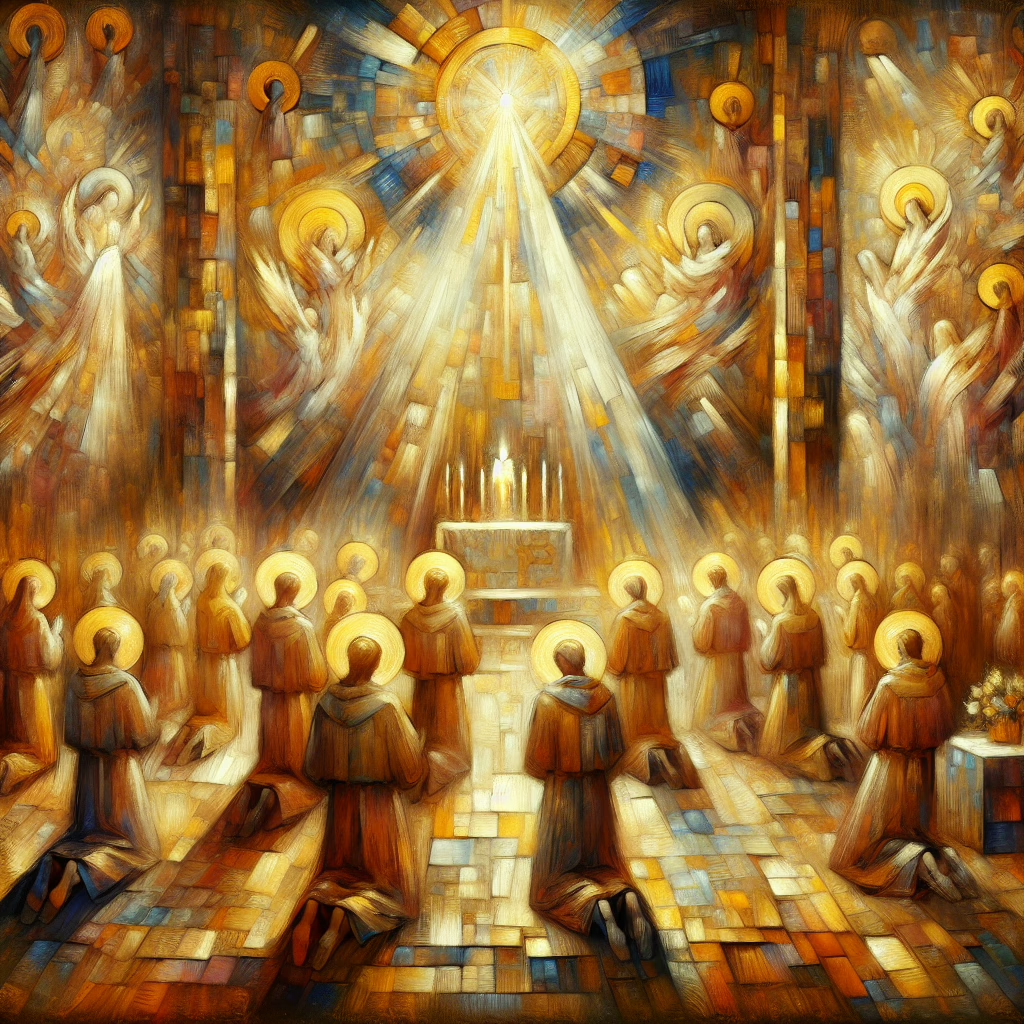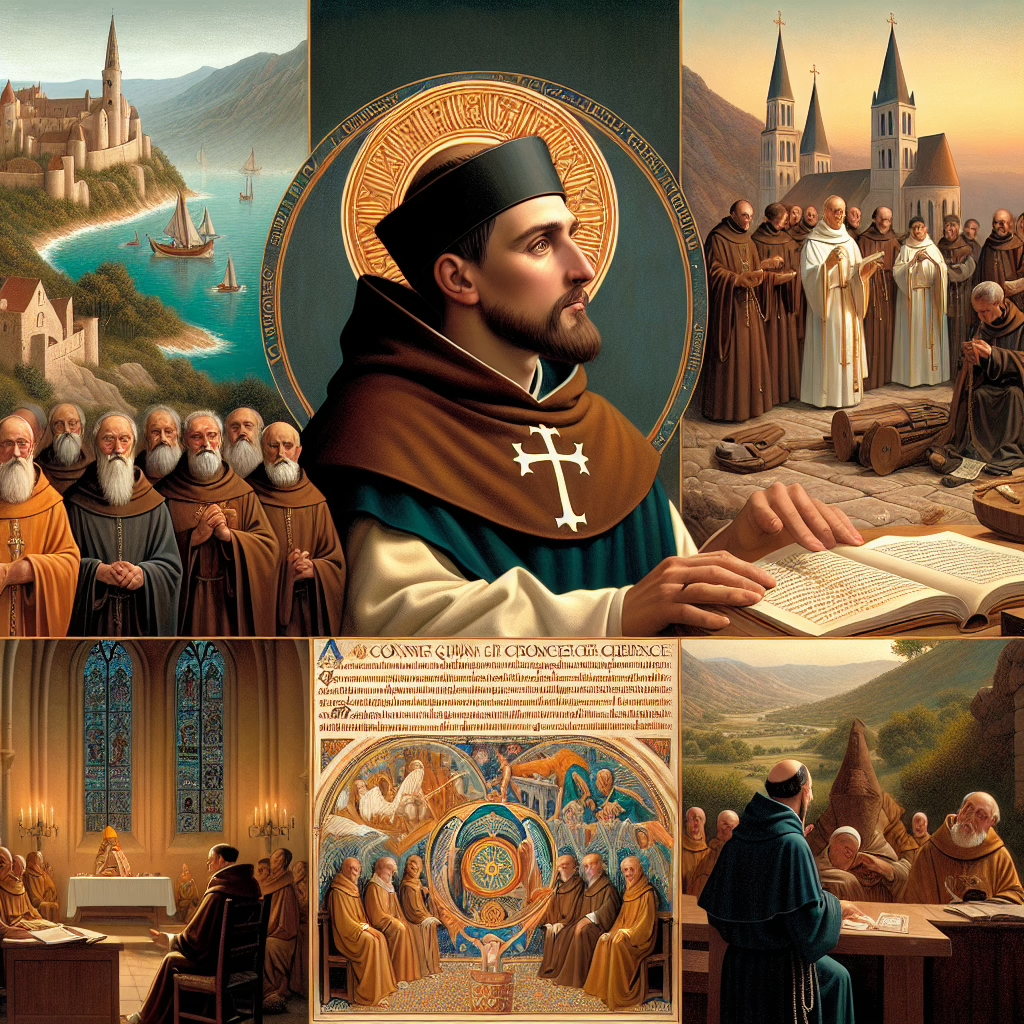Salvation Through Church Authority: Unpacking Catholic vs Protestant Beliefs
Introduction: Divergent Paths to Salvation
- As Christianity evolved, a significant theological rift emerged over salvation—primarily between Catholic and Protestant beliefs. Understanding this division involves delving into the Protestant Reformation, which dramatically reshaped how Christians view salvation.
- The Protestant Reformation questioned traditional notions of Church authority, emphasizing salvation by faith alone—a concept that contrasted sharply with Catholic teachings.
- In this exploration, we'll shed light on key points of contention, focusing on salvation through Church authority, and unravel how Catholics and Protestants access salvation through differing lenses.
- Our thesis will explore these contrasting views, paving the way for a deeper comprehension of how believers navigate their path to salvation.
1. Objection: Sola Fide – Faith Alone for Salvation
1.1 Protestant Argument Against Church Mediation
- Protestant theology strongly emphasizes faith alone (sola fide) for salvation. This principle posits that direct faith in Jesus Christ suffices, without need for Church mediation.
- Supporters turn to scripture, such as Ephesians 2:8-9, which states, "For by grace you have been saved through faith, and that not of yourselves; it is the gift of God, not of works, lest anyone should boast."
- This stance challenges the Catholic assertion that the Church serves as a conduit of grace, often questioning the necessity and role of sacraments and clerical mediation.
1.2 Catholic Response: Church as Instrument of God's Grace
- In Catholic thought, the Church is the mystical body of Christ, a necessary instrument through which God dispenses grace. The Church, instituted by Christ, cannot be separated from the process of salvation.
- Scripture provides foundation for this belief. Matthew 16:18-19 articulates Christ's establishment of the Church, granting Peter, and thus his successors, authority: "You are Peter, and on this rock I will build my Church… I will give you the keys of the kingdom of heaven."
- Further, John 20:21-23 underscores the Church's role in granting absolution of sins: "Receive the Holy Spirit. If you forgive anyone's sins, their sins are forgiven."
- Contrary to sola fide, Catholic doctrine advocates a synergy of faith and works, as espoused in James 2:24: "You see that a person is justified by works and not by faith alone."
1.3 Supporting Evidence
- The Catholic Church teaches the indispensable role of sacraments in salvation, akin to how physical signs convey spiritual grace.
- Echoing scripture, the sacraments serve as outward signs of inward grace, necessary for believers' salvation and a vivid expression of the Church's mediating role.
"For it has seemed good to the Holy Spirit and to us to lay upon you no greater burden than these necessities…"
— Council of Jerusalem, Acts 15:28
- This insight reveals the early Church's emphasis on community discernment, illustrating an origin of Church-mediated grace.
2. Objection: Priesthood of All Believers and Direct Access to God
2.1 Protestant Critique of Clerical Hierarchy
- Many Protestants cherish the belief in the priesthood of all believers, positing that each individual has direct access to God without an ecclesiastical intermediary.
- 1 Peter 2:9 affirms this, describing believers as "a royal priesthood," which some interpret as equal spiritual authority among individuals—challenging the need for a clerical hierarchy.
- Consequently, the traditional Catholic structure, evidenced by priestly ordination and hierarchical governance, is frequently questioned or rejected.
2.2 Catholic Response: Hierarchical Structure for Spiritual Governance
- The Catholic perspective holds that while all believers share in Christ's priesthood, the hierarchical structure is vital for maintaining spiritual order and unity.
- 1 Timothy 4:14 refers to priestly ordination, "Do not neglect the gift you have, which was given you by prophecy when the council of elders laid their hands on you," supporting ordained ministry as a tradition rooted in apostolic succession.
- Clerical authority is not a means of exclusion but a vehicle for stewardship and guidance, persevering in fidelity to Christ's teachings through the apostolic lineage.
2.3 Supporting Evidence
- Historically, the early Church's adoption of a hierarchical model served to unify believers and preserve doctrinal integrity.
- Learn more about the Catholic Priesthood.
Conclusion: Bridging the Divide on Salvation and Church Authority
- We've explored the profound theological contrasts between Catholic and Protestant perspectives on salvation through Church authority.
- While Catholics emphasize the complementary roles of faith, works, and Church mediation, Protestants highlight a direct faith approach.
- Catholic vs Protestant beliefs: Engaging in layered theological discussions fosters mutual understanding and theological nuance, encouraging unity among Christians in their shared journey towards truth.
- We invite readers to dive deeper into this rich interplay—explore, study, and engage in meaningful conversation surrounding the multifaceted declarations of faith.
Through this dialogue, achieve a greater appreciation of each tradition's unique contributions to the understanding of salvation.






Leave a Reply